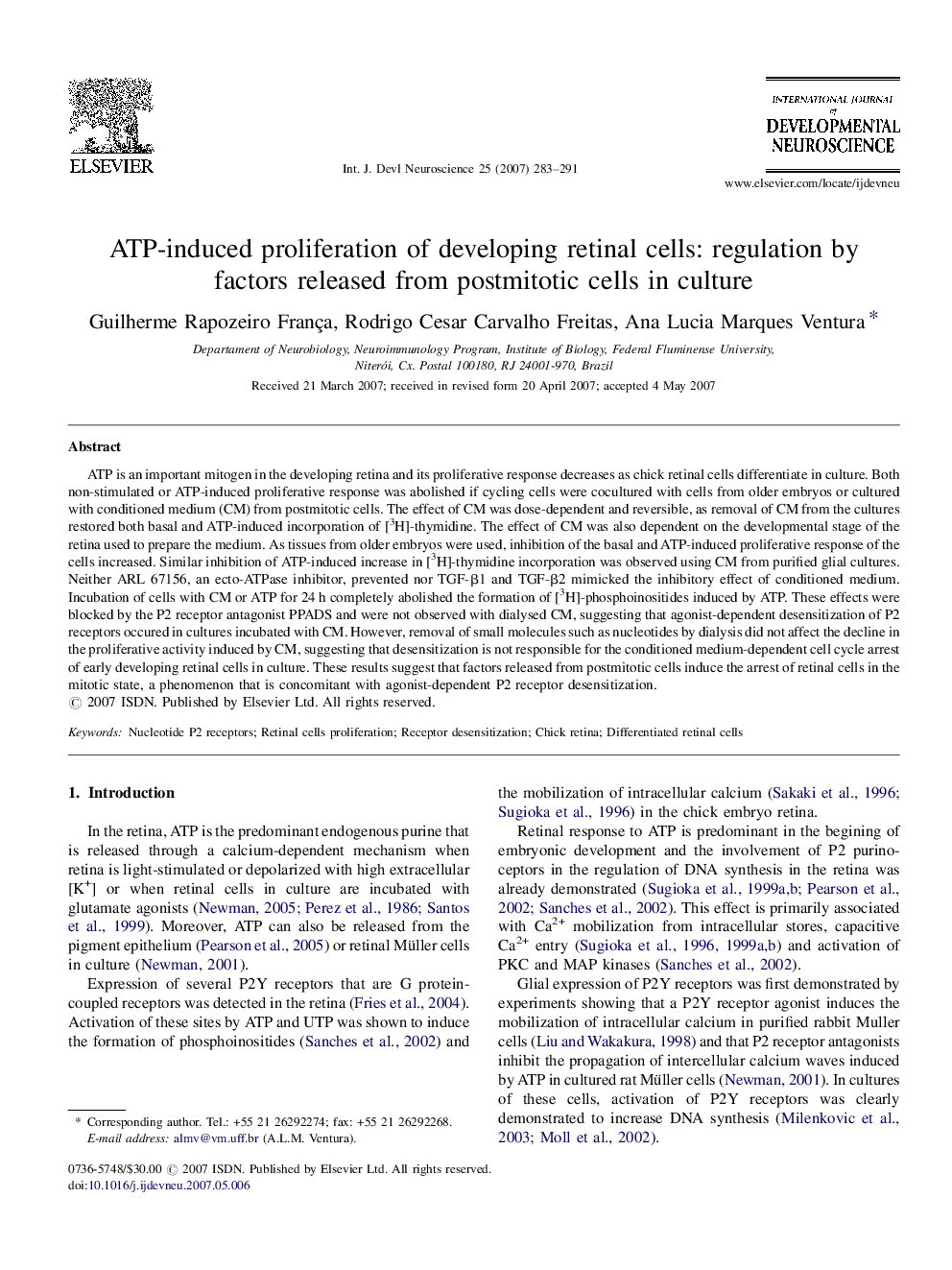| Article ID | Journal | Published Year | Pages | File Type |
|---|---|---|---|---|
| 2787079 | International Journal of Developmental Neuroscience | 2007 | 9 Pages |
ATP is an important mitogen in the developing retina and its proliferative response decreases as chick retinal cells differentiate in culture. Both non-stimulated or ATP-induced proliferative response was abolished if cycling cells were cocultured with cells from older embryos or cultured with conditioned medium (CM) from postmitotic cells. The effect of CM was dose-dependent and reversible, as removal of CM from the cultures restored both basal and ATP-induced incorporation of [3H]-thymidine. The effect of CM was also dependent on the developmental stage of the retina used to prepare the medium. As tissues from older embryos were used, inhibition of the basal and ATP-induced proliferative response of the cells increased. Similar inhibition of ATP-induced increase in [3H]-thymidine incorporation was observed using CM from purified glial cultures. Neither ARL 67156, an ecto-ATPase inhibitor, prevented nor TGF-β1 and TGF-β2 mimicked the inhibitory effect of conditioned medium. Incubation of cells with CM or ATP for 24 h completely abolished the formation of [3H]-phosphoinositides induced by ATP. These effects were blocked by the P2 receptor antagonist PPADS and were not observed with dialysed CM, suggesting that agonist-dependent desensitization of P2 receptors occured in cultures incubated with CM. However, removal of small molecules such as nucleotides by dialysis did not affect the decline in the proliferative activity induced by CM, suggesting that desensitization is not responsible for the conditioned medium-dependent cell cycle arrest of early developing retinal cells in culture. These results suggest that factors released from postmitotic cells induce the arrest of retinal cells in the mitotic state, a phenomenon that is concomitant with agonist-dependent P2 receptor desensitization.
